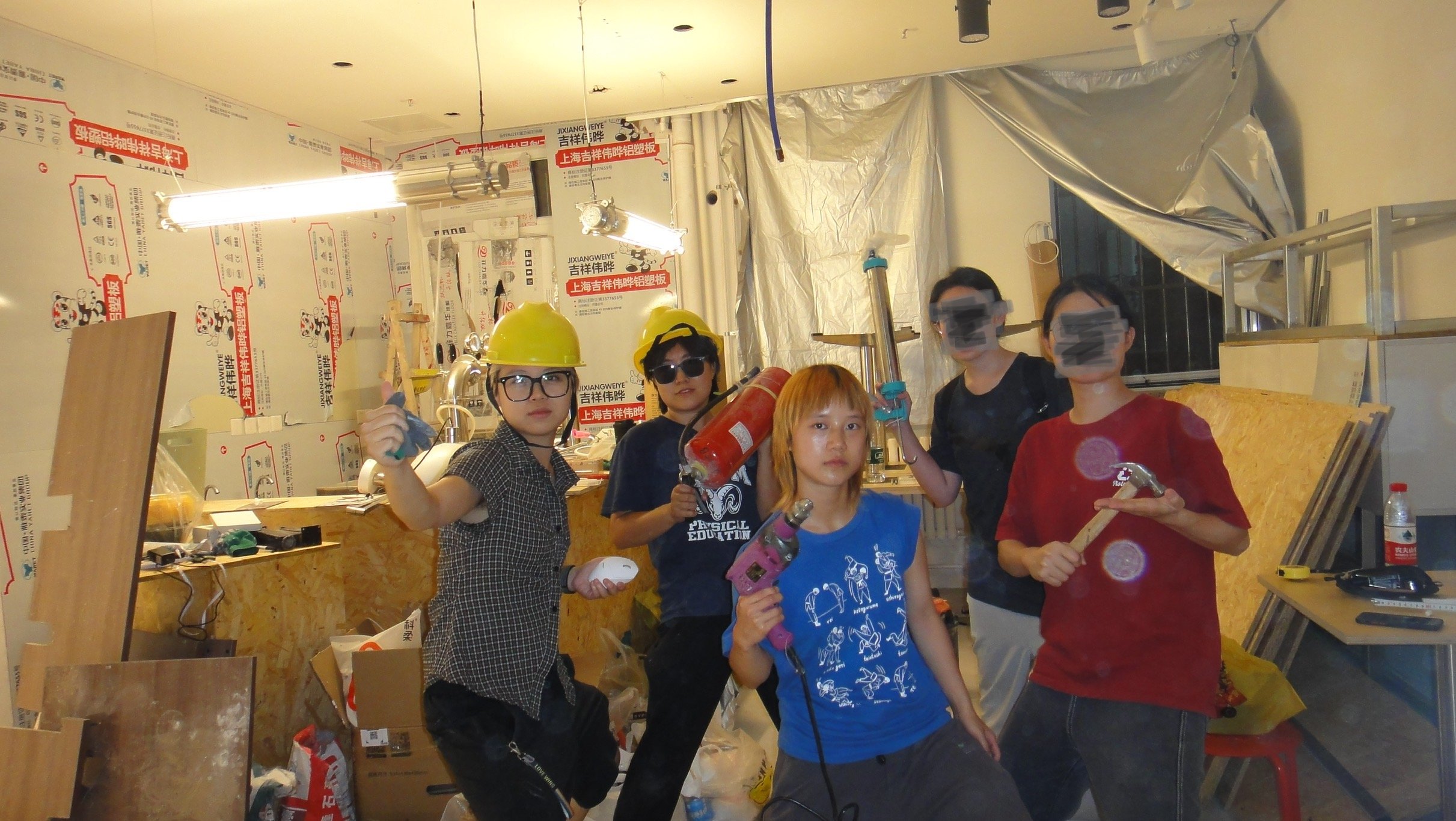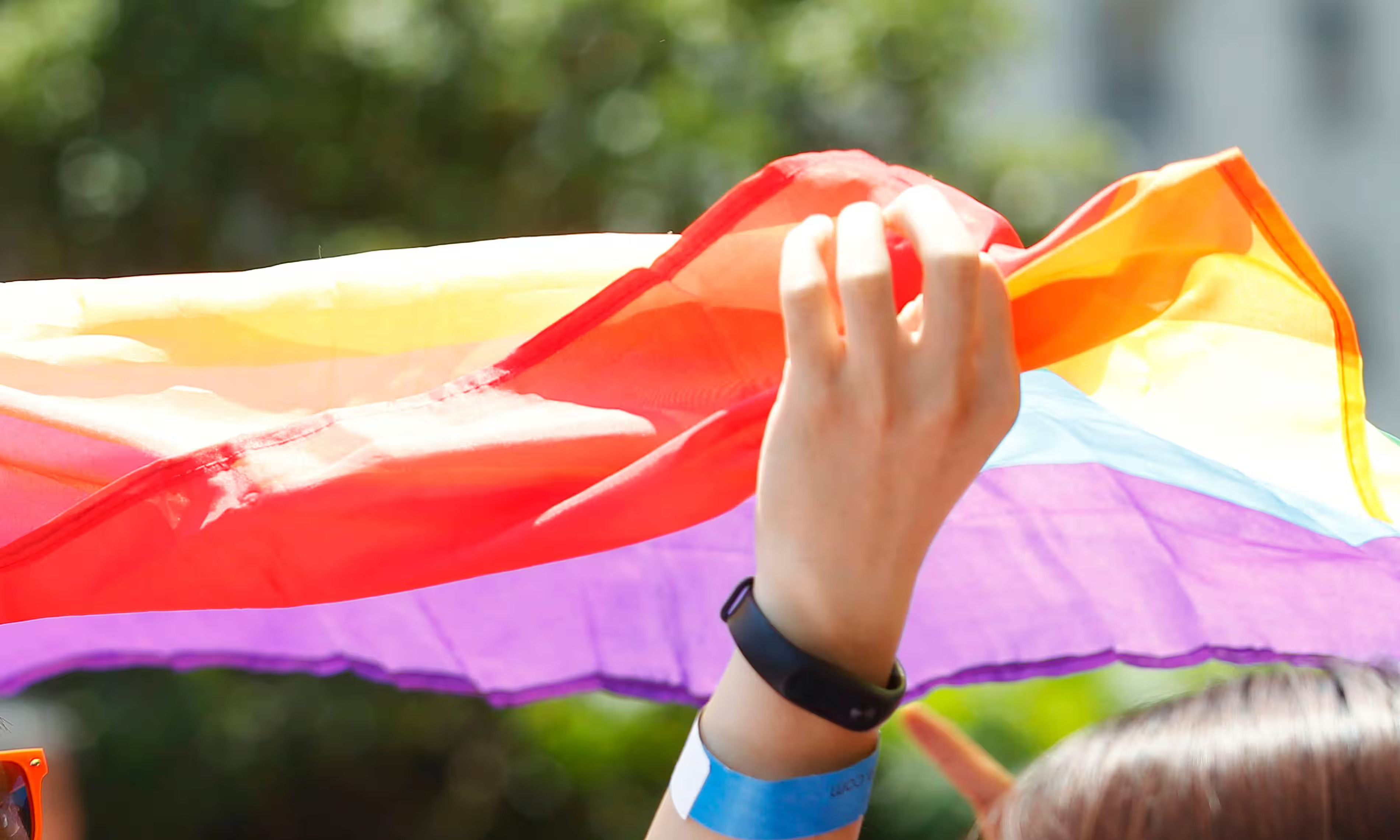Before ShanghaiPRIDE was established in 2009, there was no formal Pride festival in China. Yet thanks to the enormous efforts of its organizers and volunteers, the annual event has not missed a year to fly the rainbow flag during Pride Month since then.
Established in Shanghai — a metropolis that enjoys a greater degree of openness than other cities in China, but where restrictions mean that a traditional Pride festival or parade cannot take place — ShanghaiPRIDE has instead strived to make an inclusive space that focuses on education, community, and self-acceptance.
As PRIDE returns for its 12th edition, we spoke with some of the volunteers that are dedicating their passion and time to make this year’s event happen.
Michelle, ShanghaiPRIDE Lead Copywriter
“I joined the copywriting division of PRIDE in 2018. All the articles you see on [Chinese messaging platform] WeChat are done by me and the volunteers I work with. As we approach our busiest season, I’m doing volunteer work until 3am most days, after getting off work around 10 or 11pm. I spend lunch hours working for PRIDE as well.
“Out of all the events at PRIDE, my favorite is the film festival — it was my first-ever event. The power of the films is that you get to know other ways of life. You can also see how LGBTQ communities in other countries live their lives, and what conversations overseas filmmakers are having about LGBTQ communities and related topics.
Related:
 In China, Queer Film Events Quietly Push for Education and Acceptance“If you want to change people’s minds, you start by showing them things”Article Jun 18, 2020
In China, Queer Film Events Quietly Push for Education and Acceptance“If you want to change people’s minds, you start by showing them things”Article Jun 18, 2020
“ShanghaiPRIDE does not necessarily have a specific agenda; rather it’s a free and safe environment for everyone to engage in conversation and accept their own identities.
“My hope is that people will soon become more aware of our communities. Ours is not different from any other.
I’ve always held the belief that society is moving forward, and that each generation is more open-minded and has more new ideas than the last.
“In fact, I hope that one day there won’t be the need for something like PRIDE anymore, in a world when everybody is seen as equal and we do not need to take special pride in our identity.
“Last year there was a lot of discussion around same-sex marriage in China. In fact, not from our organization, but someone from the LGBTQ community was the one who initiated and led this conversation. People wrote letters [to lawmakers] suggesting that heterosexual marriage might not be the only valid form. And the rule is that when the number of requests reaches a certain threshold, they need to respond in a press conference.
Related:
 Is China Legalizing Same-Sex Marriage?Officials have acknowledged a stream of output from the country’s citizens urging lawmakers to legalize same-sex marriage in a new civil codeArticle Dec 21, 2019
Is China Legalizing Same-Sex Marriage?Officials have acknowledged a stream of output from the country’s citizens urging lawmakers to legalize same-sex marriage in a new civil codeArticle Dec 21, 2019
“Though in the end it wasn’t recognized, this taught me that no matter how small, our efforts will reach the right people.”
Weijun, ShanghaiPRIDE Sports Lead
“I first participated in ShanghaiPRIDE in 2017, and applied to become a volunteer within that same year.
“Although I’m a volunteer on the sports team, I do really want to talk about Open Day. Open Day is when we host LGBT-related organizations around the country at one onsite event.
It’s a bit like the ‘stall economy‘ people have been talking about recently. If you walk around the booths, you will see that there are so many organizations across the whole country — as far as Xinjiang, Yunnan, Guangxi — and of course from big cities, which themselves have very powerful scenes already. It makes you hopeful for the bright future ahead.
“Even though the situation is slowly getting better [in China], there are still a lot of people that are in need of support. There are so many people that are still having a hard time accepting their identity, and as a result they are depressed. For one thing, ShanghaiPRIDE can be there to help these people. We need to show them that we are living good lives in this world, and in this city, specifically.
“ShanghaiPRIDE is like a seed. Each year there is a brick above it, but it still breaks through, growing and blooming through the cracks.
Maybe we are moving a bit slower than other countries, but as long as we are moving forward, step by step, we will get there eventually.
“In a narrow sense, I think the Pride festival is partially to seek rights [and visibility] for LBGTQ. But from a bigger perspective, it also advocates for multiculturalism and inclusion.
“I feel as if no matter which group you belong to — LGBTQ, non-LBGTQ — everyone has a moment in their life when they discover something about themselves that is different from others. As human beings, everyone should have diversity and inclusion in their mindset [for that reason], and accept ideas and things that are different from their own.
Related:
 Wǒ Men Podcast: Being an LGBTQ+ Ally in ChinaA same-sex marriage advocate explains how she takes action to support the LGBTQ+ community in ChinaArticle Dec 23, 2019
Wǒ Men Podcast: Being an LGBTQ+ Ally in ChinaA same-sex marriage advocate explains how she takes action to support the LGBTQ+ community in ChinaArticle Dec 23, 2019
“For straight people, I don’t have any particular wish for them. I only hope that they become more open-minded — to listen, think, and then express their opinion. Not the other way around.”
Stephanie, ShanghaiPRIDE Open Day Lead
“I graduated [university] in 2014. After I graduated, I asked my friends, ‘Where are the people who are like me? What are they like?’ Because I didn’t have any other gay friends at that time. Then my friend introduced me to ShanghaiPRIDE. I started volunteering in 2015. For this year’s PRIDE, I’ve dedicated around 20 hours per week to volunteering over the last two months.
“As our organization has some resources and knowledge, I feel we can use that to influence people in the corporate world, to raise awareness and educate them not to discriminate against people based on sexuality.
Pride does not necessarily mean ‘proud to be in this community,’ but rather ‘proud to be yourself’ — no matter whether it’s in your daily life, workplace, or family relationships.
“The importance of Pride is that I think people in the community can stand out — not necessarily ‘come out,’ but stand out. It is a safe place to be yourself. On the other hand, we need to let more people see us, and in the end, raise public awareness. However, there is still a long way to go. It might take a couple of decades — maybe even 100 years.
Related:
 New Beijing Mag Missionary Goes Deep on LGBTQ+ Culture in ChinaCo-founders of the Beijing mag discuss rising icons on the Chinese LGBTQ scene, pervasive stereotypes, and China’s so-called “masculinity crisis”Article Jan 16, 2019
New Beijing Mag Missionary Goes Deep on LGBTQ+ Culture in ChinaCo-founders of the Beijing mag discuss rising icons on the Chinese LGBTQ scene, pervasive stereotypes, and China’s so-called “masculinity crisis”Article Jan 16, 2019
“There are certainly conflicts within the gay communities in China. But we are in the process of seeking common ground. We hope we will be more united.
“But of course, we will always be more united than straight people.”
Darick, ShanghaiPRIDE Community Lead
“In 2013, my roommate at that time told me about this event. I liked running at that time so I joined the first Pride Run — where I also met my wife. I liked the positive vibes at ShanghaiPRIDE, as people are free to be themselves. So I ended up being a volunteer that year. It’s been seven years since then.
“The reason why ShanghaiPRIDE is in Shanghai is because it is a particularly diverse and inclusive city. ShanghaiPRIDE is the only organization in China that has been hosting Pride for this many years. As long as we are here, there is hope.
Related:
 “We Will Not Give Up”: China’s Biggest Pride Event Turns 10Article Jun 08, 2018
“We Will Not Give Up”: China’s Biggest Pride Event Turns 10Article Jun 08, 2018
“In China, because we cannot have parades like other countries, or something carnival-style in which a lot of people participate, we have been doing what we can do step by step to increase our influence.
“In terms of where ShanghaiPRIDE fits in the global pride movement, it is still at the most basic level. We will continue to host events and let society know that we are making an effort.
“I hope one day the streets will be full of rainbow flags every year in June. As more and more young people nowadays accept LBGTQ communities, we hope they can take a stand [for us] and influence the people around them, which in turn will make change in greater society.”


















